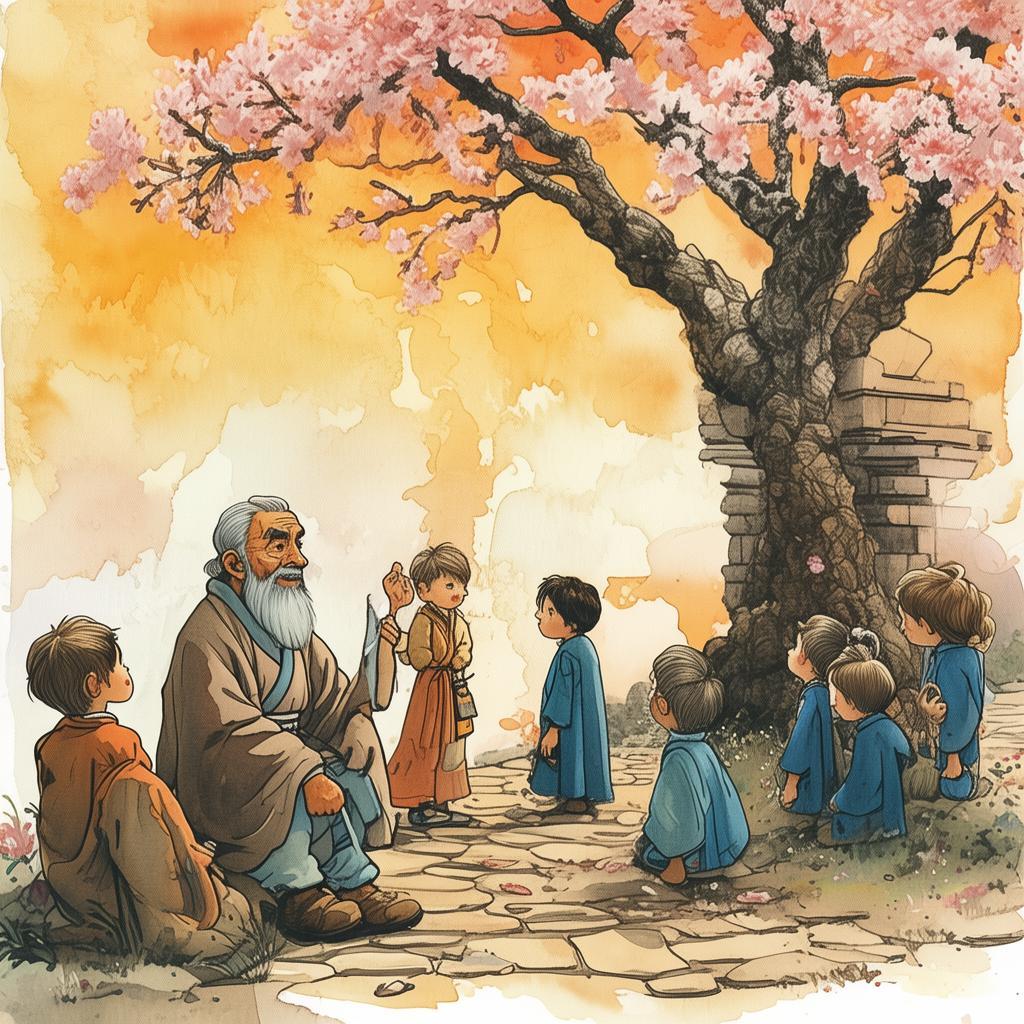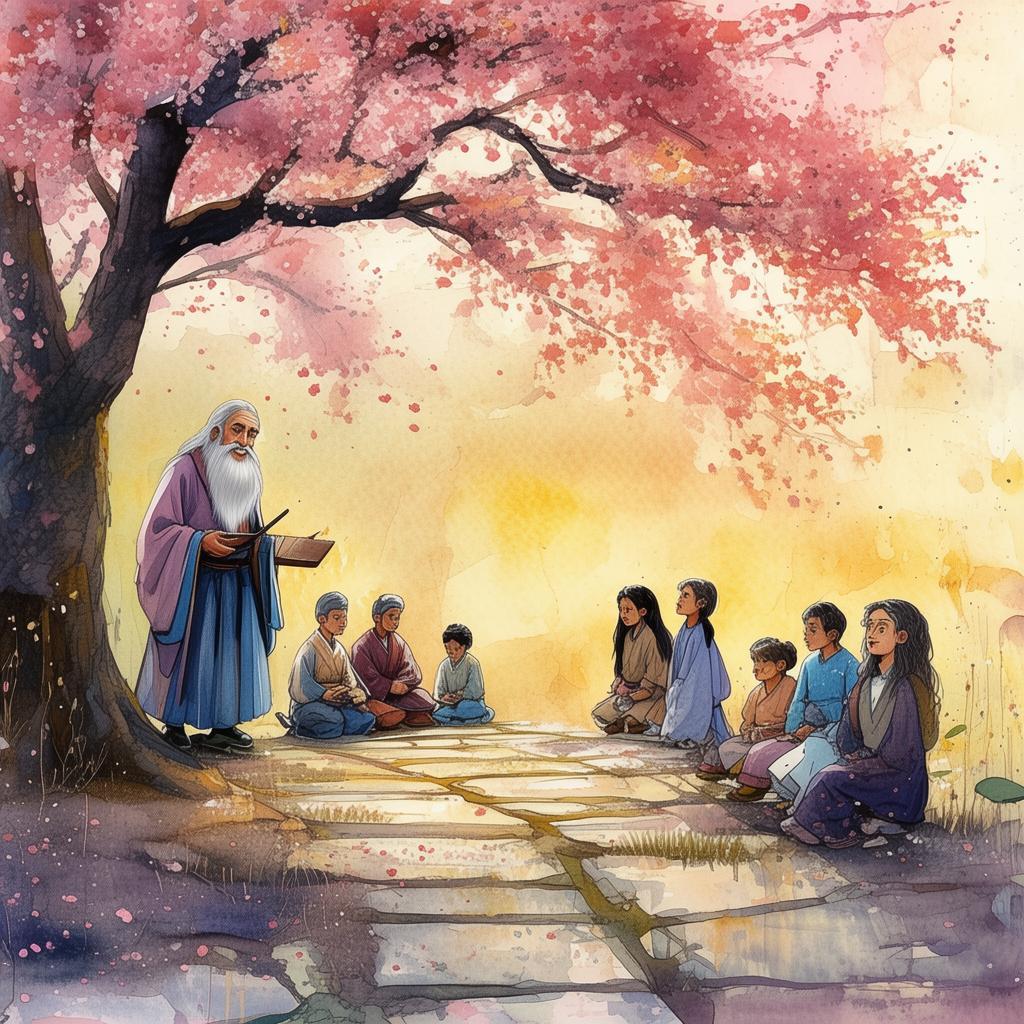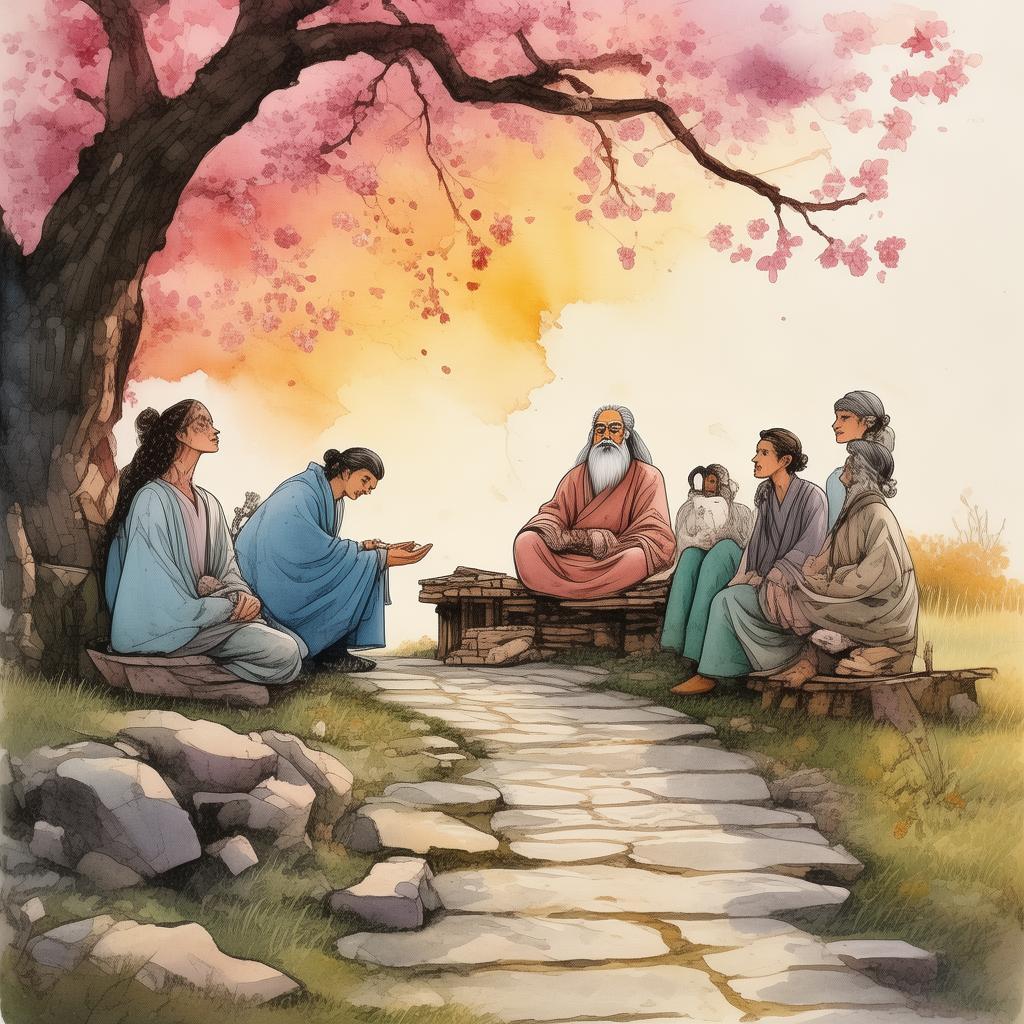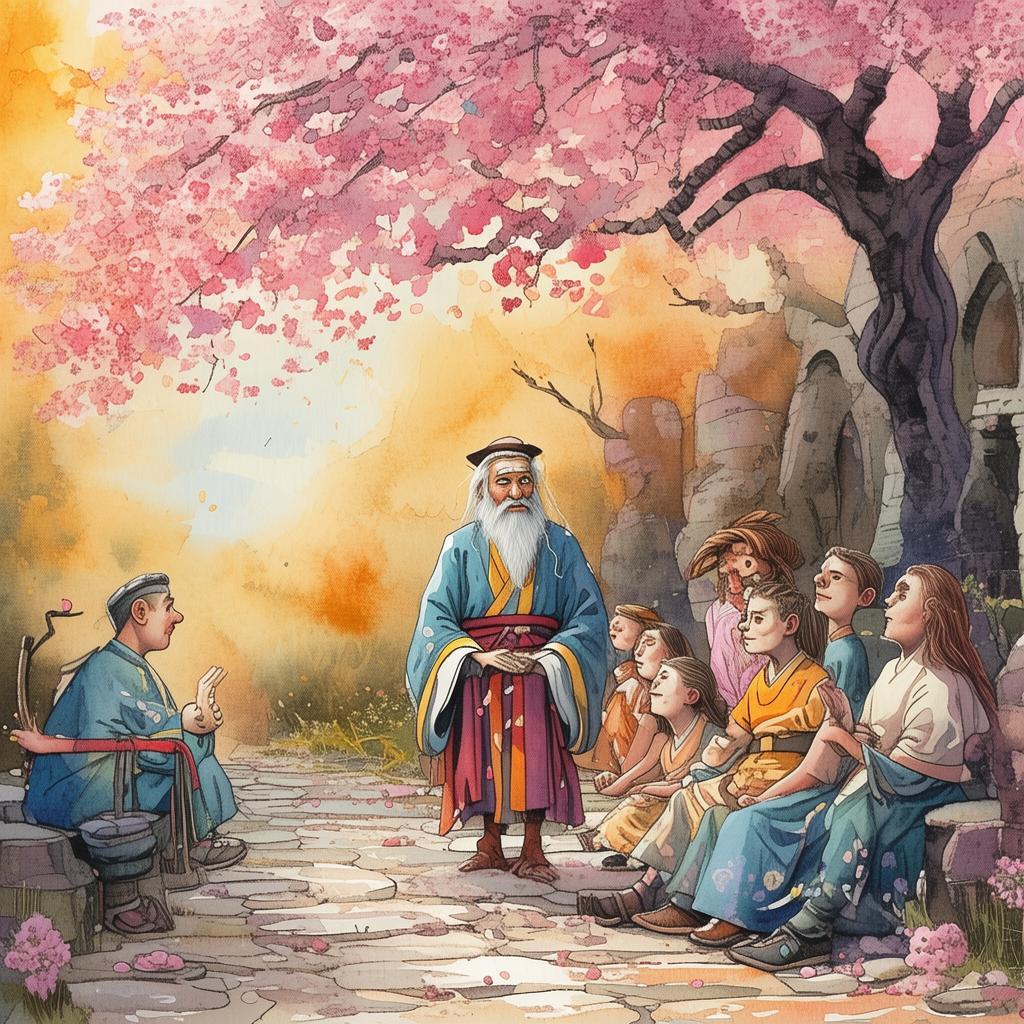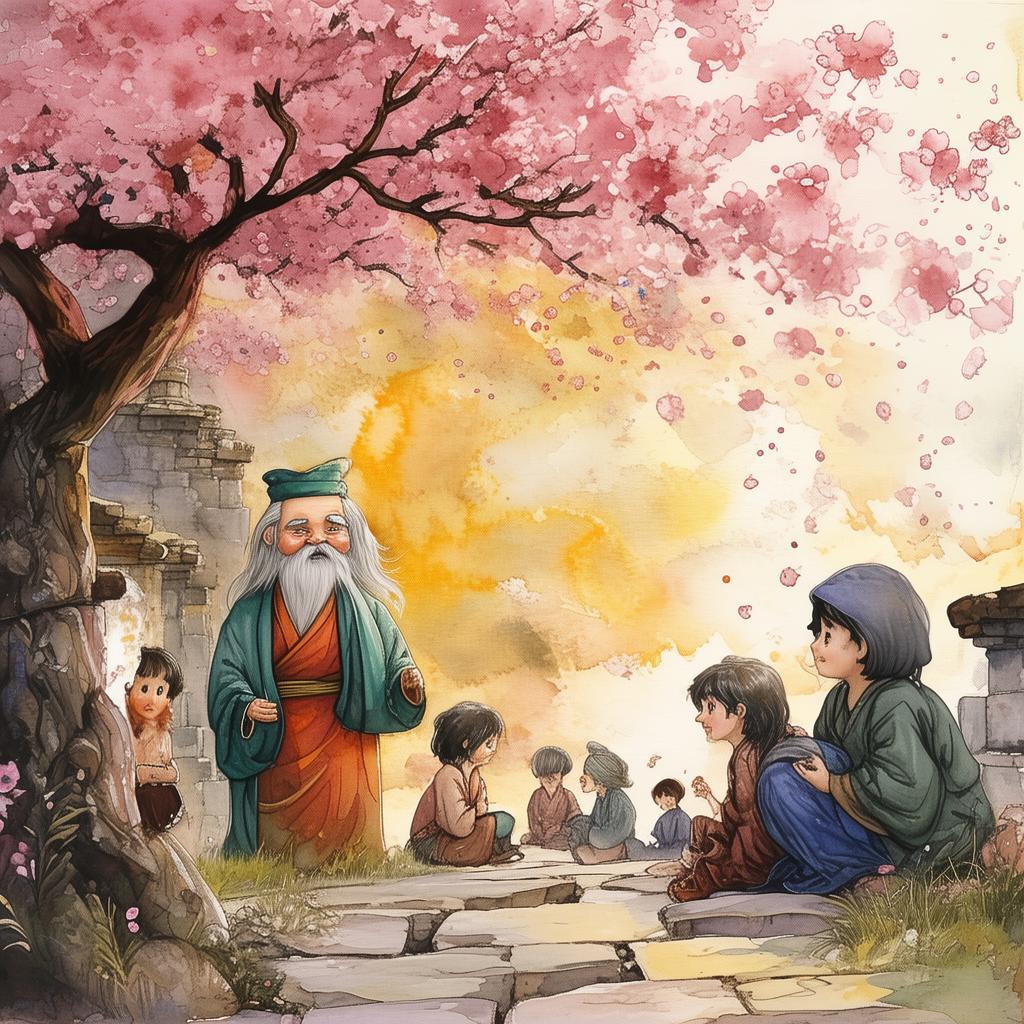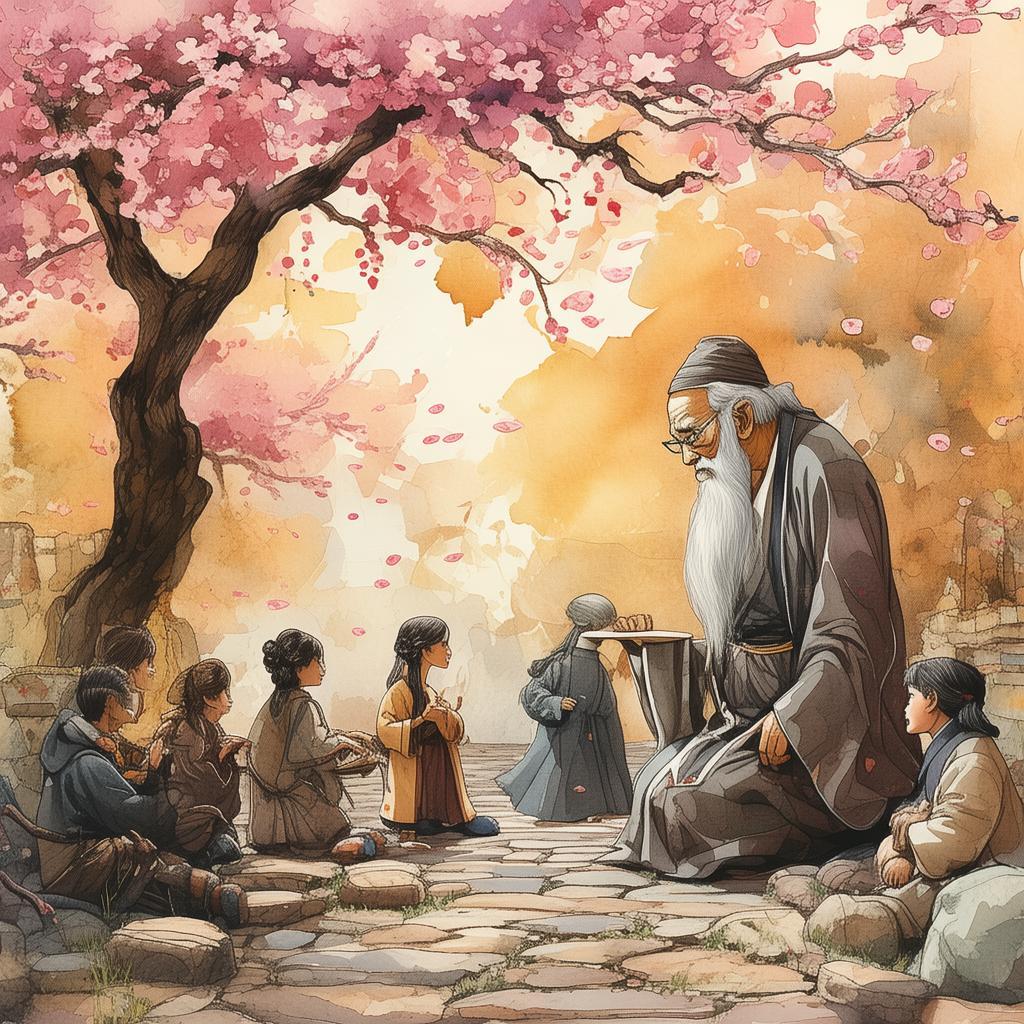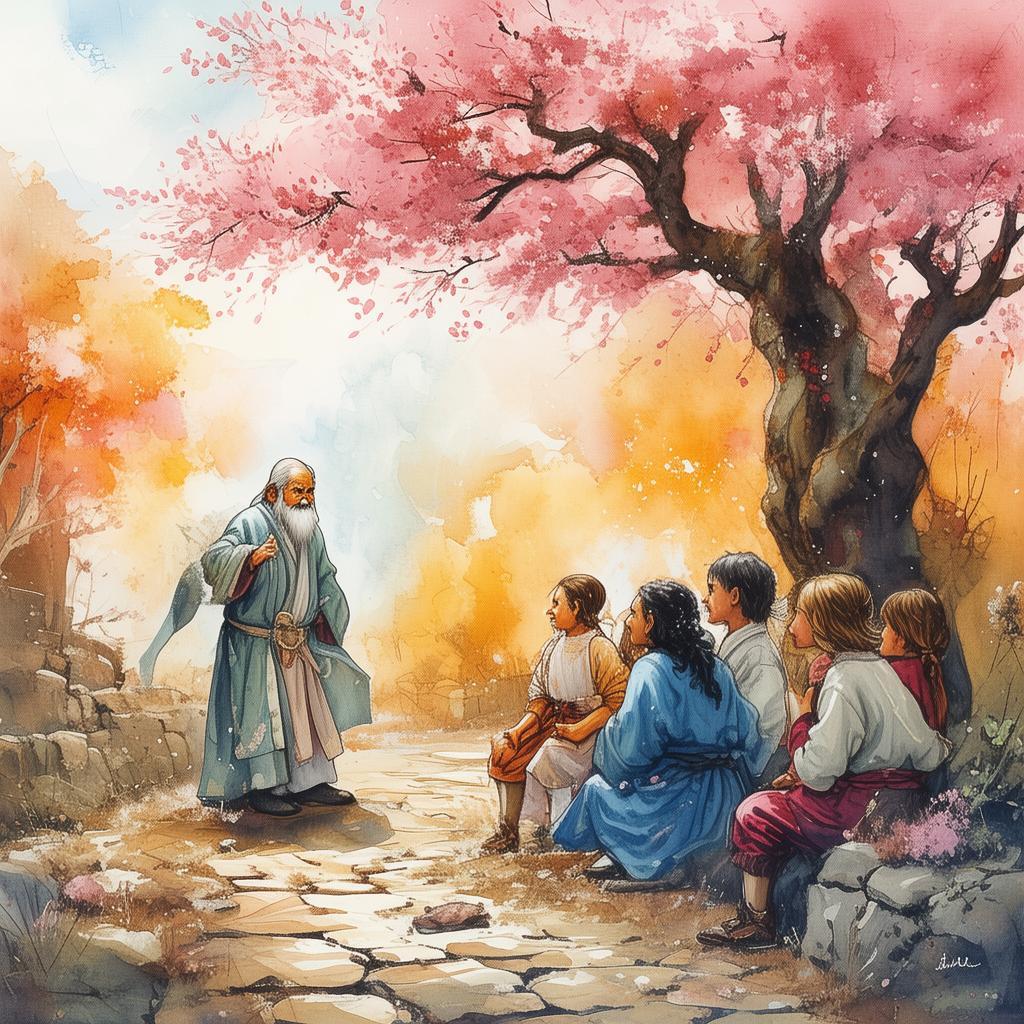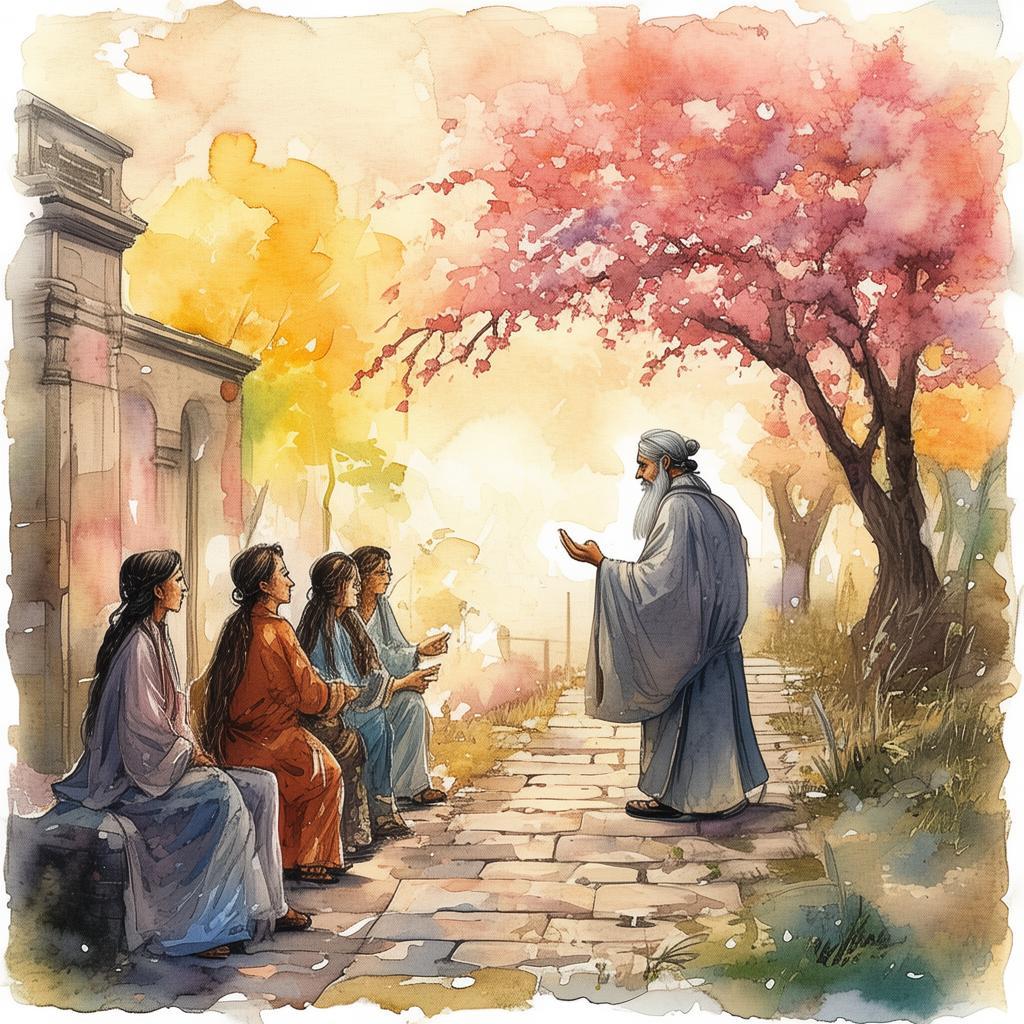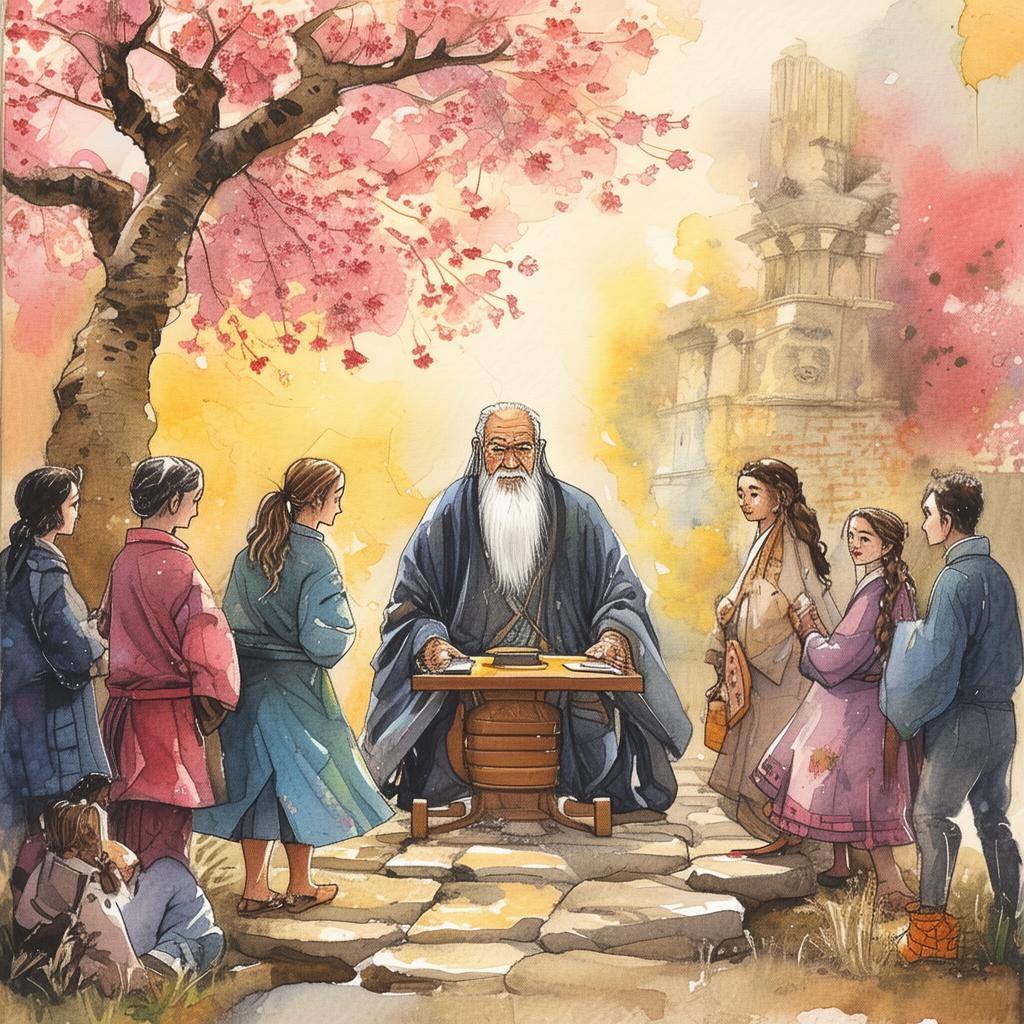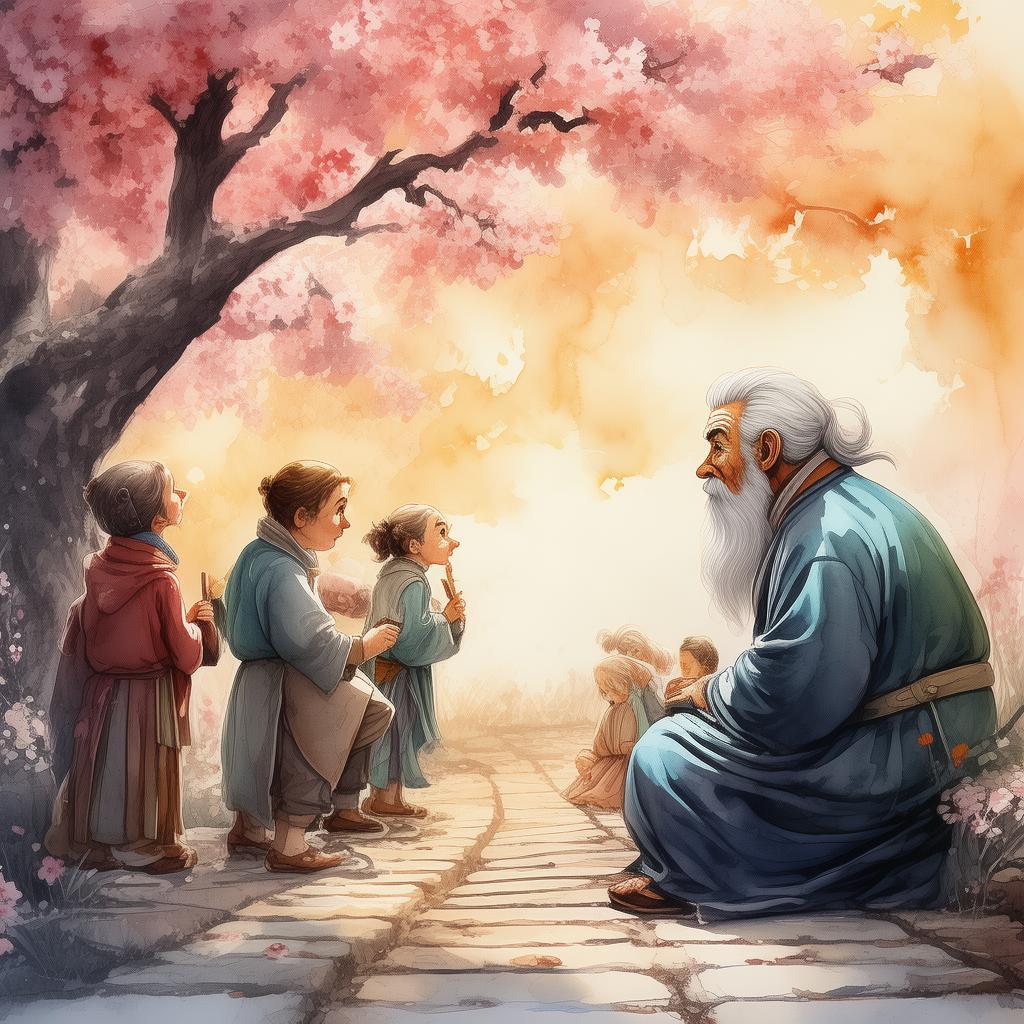Time-Weaved Retribution: The Tale of the Feudal Foe
In the bustling streets of Tokyo, amidst the neon lights and the hum of the city, there lived a man named Kaito. By day, he was a humble street performer, his voice a haunting echo of the past. By night, he was a bard, weaving tales of love, loss, and the unyielding quest for justice. His latest creation, "The Time-Traveling Bard," was a hit, captivating audiences with its blend of fantasy and historical intrigue.
One fateful evening, as Kaito performed under the moonlit sky, a sudden gust of wind swept him away. When he opened his eyes, he found himself in a lush, verdant forest, the scent of pine and earth filling his senses. He was disoriented, his modern-day attire a stark contrast to the traditional Japanese clothing of the people around him.
Kaito soon learned that he had been transported to feudal Japan, a time and place where the world was ruled by samurai and the power of the sword. He was told that he had been chosen by the spirits of the past to right a wrong that had been left unresolved for centuries. The wrong was a bitter feud between two powerful clans, the Yagyu and the Takeda.
The Yagyu had been betrayed by a member of their own ranks, a man named Masamune, who had switched sides and joined the Takeda. This act of treachery had led to a series of brutal battles, leaving countless lives lost and the land in ruins. The spirits of the fallen had taken an interest in Kaito's tale, seeing in him a potential instrument of justice.
Kaito was introduced to the Yagyu clan leader, Lord Yagyu, who was determined to avenge the deaths of his kin. Lord Yagyu was a man of great honor and principle, but he was also a man who had seen too much bloodshed. He saw Kaito not just as a bard, but as a symbol of hope and a chance to end the cycle of violence.
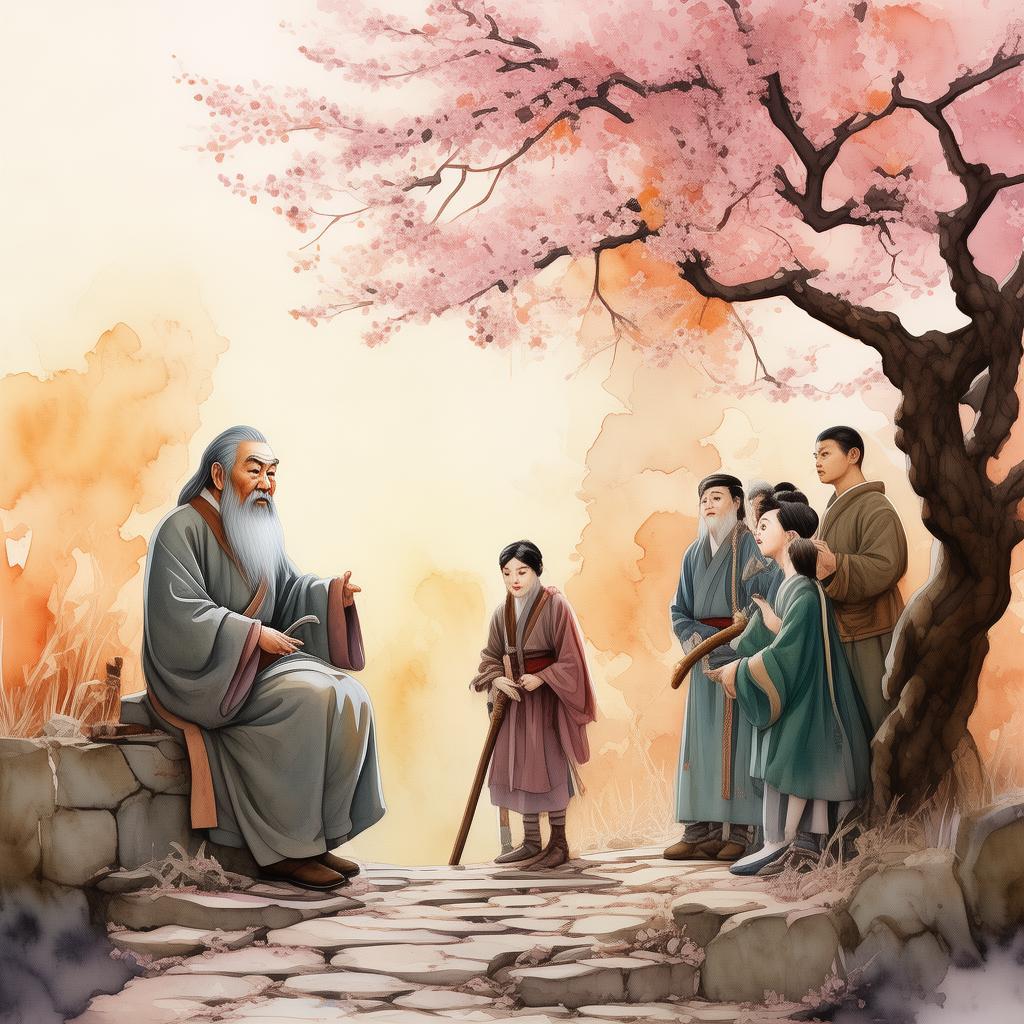
As Kaito delved deeper into the story, he discovered that the true heart of the feud lay not in the actions of the warriors, but in the hearts of the leaders who had allowed it to fester. He learned of the tragic love story between a Yagyu samurai and a Takeda noblewoman, a forbidden romance that had been the catalyst for the entire conflict.
Kaito, with his gift for storytelling, began to weave a tale that would reach the hearts of both clans. He spoke of the bravery of the fallen, the love that had been lost, and the pain that had been inflicted. He spoke of the possibility of peace, of a future where the sword was no longer the answer to conflict.
The Yagyu and Takeda clans, once united by a common enemy, began to listen to Kaito's words. They saw in him a voice of reason, a man who had been touched by the same fate that had befallen them. Slowly, the walls of enmity began to crumble, and the seeds of reconciliation were sown.
But the path to peace was not without its challenges. Lord Yagyu's son, a young samurai named Kazuo, was determined to avenge his father's honor. He saw Kaito as a traitor to his clan, a man who sought to undermine the very principles that had shaped his life. Kaito, however, was undeterred. He believed that the true strength of a samurai lay not in the sword, but in the courage to forgive.
In a climactic battle, Kazuo confronted Kaito, his blade raised high. But as the two men stood face to face, Kaito spoke not of war, but of peace. He reminded Kazuo of the love that had once existed between his father and the Takeda noblewoman, a love that had been lost to the flames of war.
Kazuo, moved by Kaito's words, lowered his sword. "You are right," he said. "We have been fighting for too long. It is time for us to lay down our arms and seek a path of understanding."
The Yagyu and Takeda clans, led by their young leaders, agreed to a truce. The blood feud that had raged for generations was finally at an end. The spirits of the past, having seen their mission fulfilled, allowed Kaito to return to his own time.
As he stepped back into the modern world, Kaito realized that the journey he had undertaken had not only changed the course of history but had also changed him. He had learned the power of forgiveness, the strength of love, and the courage to face one's inner demons.
Kaito returned to his life as a street performer, but his tales were no longer just stories. They were lessons, reminders of the human condition, and the enduring quest for peace. And so, the Time-Traveling Bard continued to weave his tales, inspiring others to look beyond the sword and into the hearts of those they sought to conquer.
✨ Original Statement ✨
All articles published on this website (including but not limited to text, images, videos, and other content) are original or authorized for reposting and are protected by relevant laws. Without the explicit written permission of this website, no individual or organization may copy, modify, repost, or use the content for commercial purposes.
If you need to quote or cooperate, please contact this site for authorization. We reserve the right to pursue legal responsibility for any unauthorized use.
Hereby declared.
